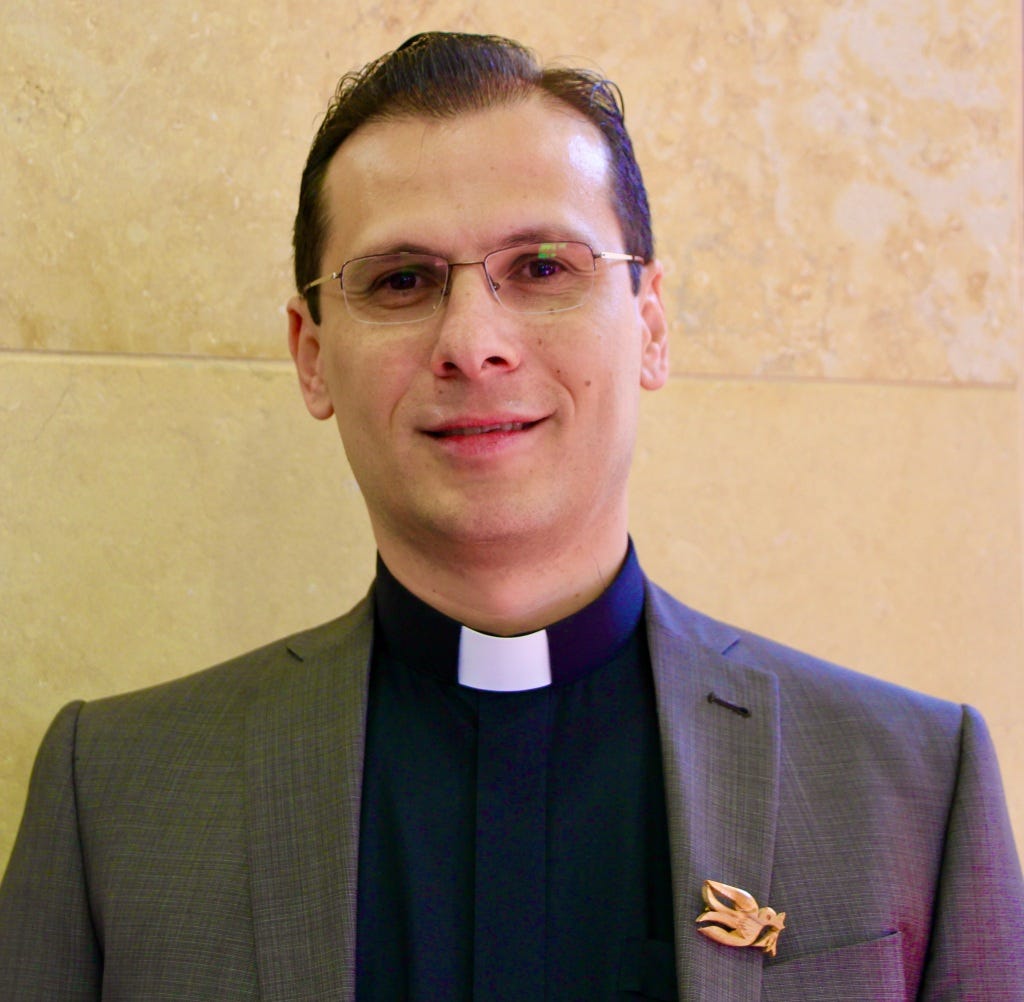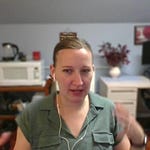TODAY'S GUEST is Munther Isaac - Palestinian theologian, Lutheran minister, author and academic. This holy week many of us will be thinking of the holy land as we journey towards Easter, and in this conversation we listen to a voice many of us don’t get much of a chance to hear – the voice of a Palestinian Christian, reflecting here on the role of the Psalms in his own life and the affinity his community has for the Psalms – especially as they express complaint and lament on Good Friday, and as they point to a vision of a shared, peaceful future in his land.
Born and raised in Bethlehem, Munther Isaac speaks internationally and at the local level on issues related to theology of land and reconciliation, and has written extensively on these themes in his books “From Land to Lands,” and “The Other Side of the Wall”.
A few months ago, I was on a panel on reconciliation and worship, and Munther was one of the speakers. Having spent a year of my life during university living in Jerusalem and traveling to the West Bank, I was very intrigued by what he shared of Palestinian Christian theology and perspective, and when he mentioned his community’s connection with the Psalms, I wanted to hear more. So I got in touch, and we were able to find a time last month in early Lent, during the first few weeks of the Russian invasion of Ukraine.
In this conversation, we talk about the power of reciting Psalms as a community in times of trouble; about how Good Friday reminds us that even when we feel forsaken, we’re not alone; about how persistence in prayers of complaint and lament is in fact a sign of deep faith; and about the vision of an ideal Jerusalem in which barriers are broken and enemies become friends.
So whatever it is that brought you here, I’m glad you’re with us.
Find the podcast on the Psalms for the Spirit website or subscribe on Apple, Google or wherever you listen to your podcasts.
More about Munther:
Munther Isaac is a Palestinian Christian pastor and theologian. He now pastors the Evangelical Lutheran Christmas Church in Bethlehem. He is also the academic dean of Bethlehem Bible College, and is the director of the highly acclaimed and influential Christ at the Checkpoint conferences.
Munther is passionate about issues related to the Palestinian theology. He speaks locally and internationally and has published numerous articles on issues related to the theology of the land, Palestinian Christians and Palestinian theology, holistic mission and reconciliation. He is the author of “The Other Side of the Wall”, “From Land to Lands, from Eden to the Renewed Earth”, “An Introduction to Palestinian Theology” (in Arabic), and a commentary on the book of Daniel (in Arabic). He is also involved in many reconciliation and interfaith forums. He is also a Kairos Palestine board member.
Munther originally studied civil engineering in Birzeit University in Palestine. He then obtained a Master in Biblical Studies from Westminster Theological Seminary and then a PhD from the Oxford Centre for Mission Studies.
Munther is married to Rudaina – an architect, and together they have two boys: Karam (8) and Zaid (6).
Come, Spirit, Come (Psalm 144)
Peace be with Jerusalem (forthcoming album)
You can find our published scores, CDs and mp3s through GIA Music














Share this post